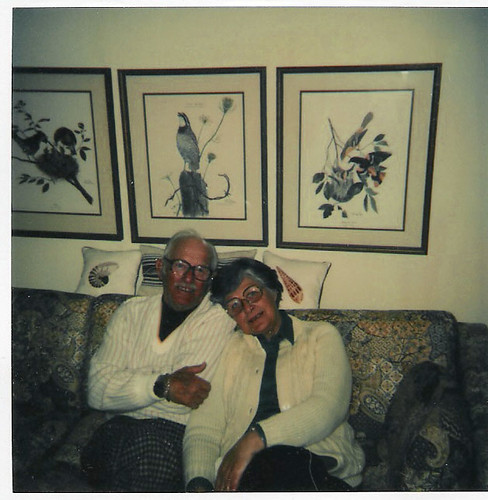 Mothering Mother: A Daughter's Humorous and Heartbreaking Memoir by Carol D. O'Dell
Mothering Mother: A Daughter's Humorous and Heartbreaking Memoir by Carol D. O'DellMy rating: 2 of 5 stars
Each experience with Alzheimer's (or other dementia) is individual and unique, but there are many connecting points for anyone who cares for the elderly. Both of my parents are now gone, but I had a little trouble relating to this book because my experience was so different. O'Dell's mother adopted her when she was a child. Her mother was a preacher who occasionally slapped her around. O'Dell was rebellious as a teen. When O'Dell's husband was transferred out of state and there was no one to care for her mother who already had Parkinson's, they took her along, building a MIL apartment on their new house. O'Dell had to do all the work of caring for her mother as she became more enfeebled. This is so far from what was my situation.
O'Dell's desire to be a good daughter at the expense of her own happiness and the comfort of her own husband and children makes my martyr-complex look subatomic. (I go around telling people how lucky I had it and I was lucky. I had a devoted husband who did all the work for me and my parents had enough money so that they could afford some in-home help until their medical conditions called for Medicare to take over for a brief period. Sure, I was miserable and had to resort to prescription happy pills because it's just so goddam sad to see your parents not recognize you anymore. But Mom's dementia lasted almost exactly one year and Dad was able to live on his own with minimal help until the last year.) One starts to wonder if she protests too much. Or perhaps she tried to make up for her rebellious phase.
The writing is not stellar, but this is a real person talking about real things that happened, not some manipulative poet trying to wring the last tear out of you. I recall one instance of "Block that metaphor!" as the New Yorker will have it. There is an extended period after her mother dies that I feel drags on. This is probably because the much-anticipated event (and I'm speaking from personal experience here, my dad was 101 when he died) is still a shock when it happens and you don't really get around to mourning until months later. Then the things that set you off are the oblique ones you didn't see coming and hadn't built up any defenses for. Still, you've gotcher Climax and then your Denouement and the latter is supposed to be either shorter than the one in this book or more piquant.
As a side-note, the jacket blurb said that O'Dell taught creative writing and was published in some Chicken Soup compilation about sisters. I know she has 3 daughters, but I thought that was a nice juxtaposition considering she grew up as an adopted "only child." Ha,ha, I said to myself, creative writing and only child writing about sisters. Ha. [As an even side-r note, I consider the perpetrators of the Chicken Soup books to be utterly depraved, devoid of any conscience or taste. Not the writers, who are only literary whores, but the pimps and shills that foist them on the public. Just my opinion! La la la!:]
View all my reviews >>
 My parents while they still had all their marbles.
My parents while they still had all their marbles.






